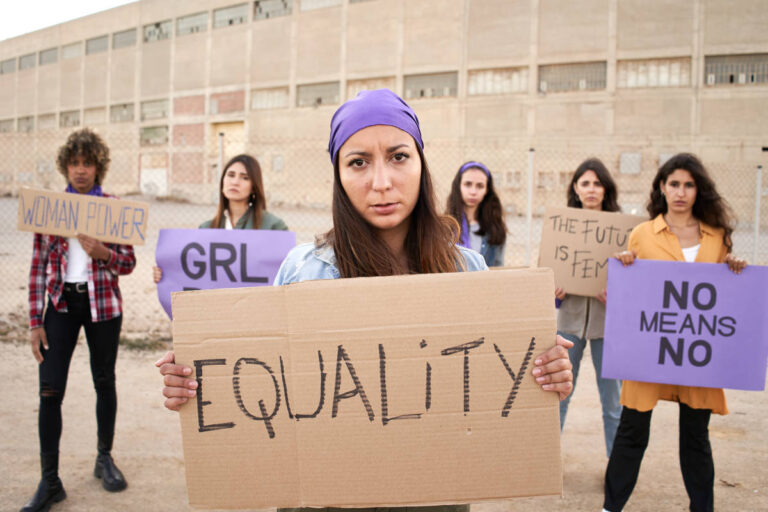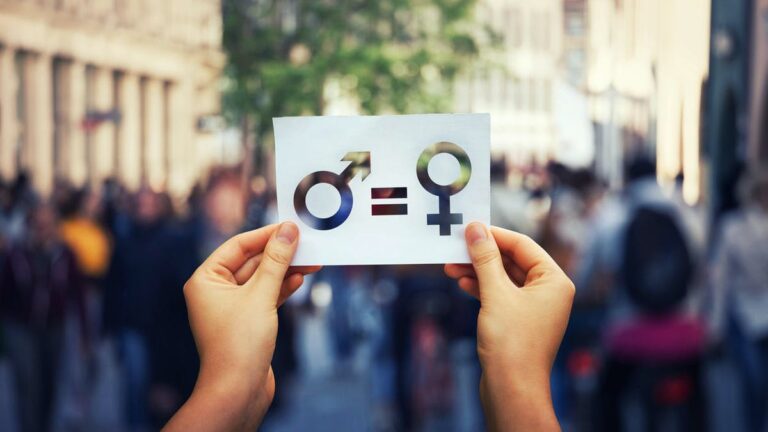Women’s empowerment in Madagascar is the most effective development tool today; women around the world are actively working as leaders and outperforming others in all spheres of life.
As the world holds its breath and prays daily for an incredible escape from the COVID-19 pandemic, it is the women governors and nations led by these amazing figures who are taking responsibility and advancing alone in the battle wherever it may be.
Women’s empowerment in Madagascar depends to a large extent on many different variables that include geographic setting (urban/rural), social status (caste and class), educational status, and age factor. Actions on women’s empowerment exist at the state, local and national levels. However, women face differentiation in most areas such as education, economic opportunities, health and medical care, and political participation, demonstrating that there are substantial gaps between strategic advances and actual implementation at the community level.
The development and implementation of a concrete policy framework, dissemination of civic awareness and education on women’s empowerment can pave the way for the accomplishment of the desired missions to eradicate the plight of women in Indian society. The field of women’s empowerment in Madagascar is limited to granting balanced rights to women. Yet, it is also about ensuring that they are rooted and legitimate partners in the workforce. Our organization for women’s empowerment in Madagascar works like a miracle in disguise.
Empowerment of women in Madagascar
The term women’s empowerment refers to the authority, or power exercised over women sharing indistinguishable rights. The term refers to the liberation of women from the socio-economic constraints of dependency. Women make up about 50% of the country’s population, and a large proportion of them remain economically dependent on each other without employment. In the age of feminism, a small portion of women in Madagascar are liberated to use their free will and are allowed to shape their lives as they wish. But there is a considerable division of women in this nation who need optimistic support. In most Indian villages and semi-urban cities, women are still denied basic education and are never allowed to pursue higher education despite having accumulated the required knowledge.
Women are known to effortlessly take on multiple roles on a daily basis and are therefore considered the backbone of every society. Living in male-dominated societies, women play a wide range of roles, such as caring mothers, loving daughters and capable colleagues. The best part is that they fit every role perfectly. Nevertheless, they have also presented themselves as a neglected group in society in different parts of the world. In turn, this has allowed women to survive inequality, financial reliability, oppression and distinct social ills head on. Women have been living under the shackles of slavery for centuries now, preventing them from reaching professional and personal heights.
Factors affecting women’s empowerment in Madagascar
Gender discrimination must be checked. The problem of gender discrimination has affected the pace of women’s empowerment in Madagascar. Gender discrimination in all policy areas must be checked. Women must have a way to actively participate in decision making at all levels and in leadership processes to achieve the motive of women’s empowerment. They must get the admiration and importance they deserve, which they rightfully deserve on the basis of merit in society to fulfill their destiny.
Education is the most dynamic factor of advancement and growth. It is the single most important tool for anticipating women’s empowerment in Madagascar and human resource development. It highlights the opportunities for access to employment and livelihood, which in turn boosts women’s economic empowerment. In order to join the community of developed countries, people must understand the value and importance of women’s education and thus make a combined effort to put Madagascar on the path to progress. Education makes the individual conscientious, enabling him to understand, interpret, criticize and eventually transform his atmosphere. This results in the acquisition of an abundance of skills that increase a person’s enthusiasm and ability to shape life in a better way.
Education is the first line of defense for women who resist the life-threatening circumstances that the traditional way of life perpetuates. It motivates a sense of control over personal wealth. In addition, it opens the door to preferences that are not confined by tradition. With meaningful education, a woman’s status transcends the restrictions of motherhood. The advancement of women’s and girls’ education leads to the postponement of their marriage date and the resulting constriction in the size of their families.
Priority should be given to enrolling and retaining girls in formal basic education and non-formal education through incentives such as free textbooks, midday meals, school bags, science kits, uniforms, scholarships, residences, and hostels, as well as eliminating gender discrimination in the curriculum. Education will go a long way in familiarizing women with their legal and personal rights and fighting for their privileges, which will help protect their rights mentioned in the constitution.
Mass media brings transformation – Mass media is responsible for playing an important role in projecting and propagating related issues, specifically on women empowerment in Madagascar. The many programs related to women’s prestige have revealed that mass media allows her husband to behave towards his wife with great honor and respect. He can remake her attitude and assist her in the domestic domain to reduce stress and anxiety. Mass media plays a crucial role in repairing the attitude and conversation pattern of the husband and other family members towards women.
Women should know that opportunities will not reach their knees. They should determine the means to create them. They should fight to rebuild their leading position in Indian communities and societies. They should grow hard to exercise their rights and maintain justice and equality in the society. They must work vigorously for the complete elimination of poverty, dowry diseases, illiteracy and the productive implementation of all women-related programs and laws.
Women empowerment is valuable for the development and advancement of the family, community as well as the nation. Therefore, it must be a major concern of the Indian government to bring women to the forefront of the development strategy by empowering them through numerous development-oriented programs.




